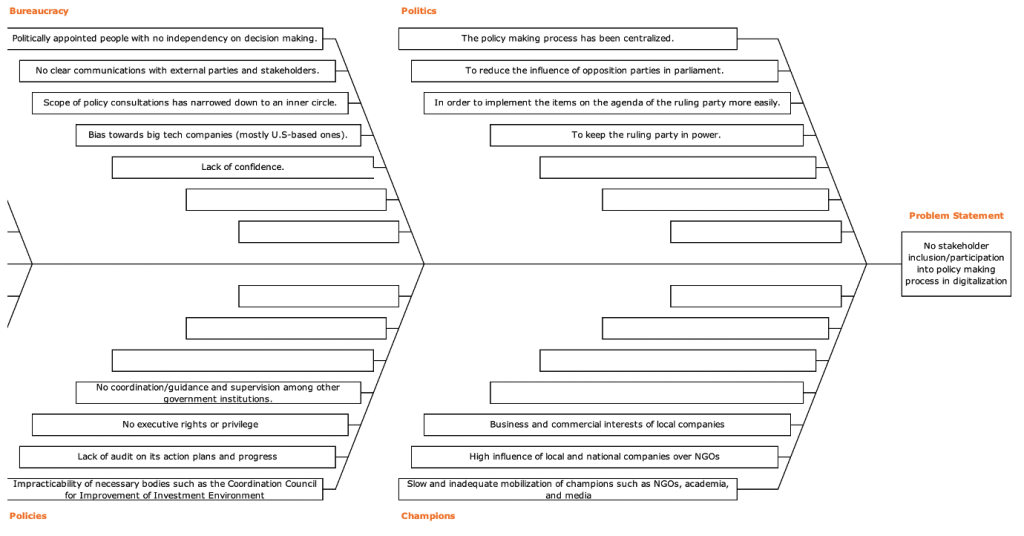Guest blog by Emir Gelen
IPP Program Journey: Empathizing with peers from public sector
As a young public policy professional having seen and worked both in government and private sectors a little more than 10 years of experience, I have been always aware of the importance of self-development. The COVID-19 period has changed the way of doing business, social interactions as well as corporate cultures and even the running of bureaucracy. Besides the heartbroken outcomes and drastic impacts of the pandemic process, I believe that the “new normals” of our daily lives have provided us a new opportunity of using our time more efficiently. The company I am working for has a principle called “Learn and Be Curious” which tells us that leaders are never done learning and always seek to improve themselves. I am a person with high curiosity about new possibilities, so this is how I decided to enroll in Harvard Kennedy School’s Implementing Public Policy Executive Education program.
I always wanted to improve my practical knowledge around policy making with some theoretical background and academic perspective. Before enrolling in this program, I was expecting to learn more tactics and strategies in lobbying and shaping the policies from scratch. As the program progressed, I realized that the courses and materials seemed to be actually designed for public sector professionals instead of policy professionals from private sector. But of course, this point of view also gave me a lot. First things first, I had the opportunity to see what kind of challenges do public sector professionals face with before, during and after their policy making processes. This was very important for me, because my customers and stakeholders are also the same target group when I carry out my duty here in Turkey. One of the key learnings I got from this course has been the ability to think from a government official, regulator or policy maker perspective. In addition to this, I also learned many new concepts and methodologies such as Ishikawa (fishbone) diagram, 4P (perception, projection, people and process) model of leadership strategy, and of course, PDIA (Problem Driven Iterative Adaptation). I would never have thought that these new methods I learned would help me so much in organizing tasks and responsibilities in my daily work life.

When I started this course by defining my implementation challenge I am working on, I was confused with the new concepts I came across and strayed away from the main direction. As the course progressed, I actually learned how to better identify and describe my primary implementation challenge. The problem I have been working on is that foreign direct investors and international firms, and external stakeholders are being systematically excluded from policy-making processes in regards to the information and communication technologies (ICT) vertical mostly because of the centralization of the legislative process in line with the ruling party’s political agenda and motivation. In other words, a policy-making process without a multi-stakeholder approach has been creating a problem especially for foreign investors like the company I am working on in Turkey.
Thanks to the fishbone diagram I created with the help of IPP materials, I was constantly reminded of how to prioritize my goals and what issues I had to stick to in order to reach my overarching goal. While doing all these, I got very significant insights as to what kind of problems my stakeholders, who are usually public officials, may experience in policy making. I saw the importance of earning trust, effective time management, and correct communication in policy-making processes, and I tried to put them into practice as much as I could.
Earning the trust of our external stakeholders, in Turkey’s relationship-centric business environment, has a significant impact on my ability to deliver public policy results. I realized that I have to be relational, more than ever before, as it will help me have influence and connect with others, which will eventually help me and my organization expand our bandwidth among policymakers and regulators. To this end, I will definitely strategize my next steps based on the understanding of “transactional to relational” where I aim to establish more personal relationships with key stakeholders instead of engaging them when there is a need. Because, thanks to this course, I have seen that even our public stakeholders can have burnouts, and some other personal challenges. I realized that nothing is as it seems from the outside.
Before I finish my words, I also would like to highlight one of the most concrete outcomes I achieved in the past weeks. NGOs play a very important role especially to raise awareness on specific policy issues. That’s why, one of my priorities was to mobilize the leading champion, the International Investors’ Association of Turkey (YASED) to bring forward critical issues to our businesses before government at all level: We have successfully achieved the re-establishment of the mechanism that can convey the problems of foreign investors directly to the Head of State. This was also something specified in my fishbone diagram. With this, the Coordination Council for Improvement of Investment Environment has once again stepped in to deliver our messages to the higher levels in the Turkish administration.
Lastly, I would like to thank Prof. Matt Andrews for his enlightening know-how, Salimah Samji and Amber Thacher for their amazing and continuous support throughout the program, Christian Cuellar for his patience to provide me feedback on my weekly assignments, Prof. Wilkins and Prof. Higgins for their spectacular case studies, and all my colleagues and peers for the high-quality exchange of unique ideas.
I hope our paths will cross again.
This is a blog series written by the alumni of the Implementing Public Policy Executive Education Program at the Harvard Kennedy School. Participants successfully completed this 6-month online learning course in December 2020. These are their learning journey stories.
